Конспект уроку з англійської мови для 6-го класу на тему "Wonderful World of Travelling".
Підсумковий урок з теми "Подорож". На уроці використані різноманітні інтерактивні методи навчання: "асоціативний кущ", "мікрофон", "карусель", робота в групах та парах. Учні вчаться на уроці усному мовленню, аудіюванню, тренуються висловлювати власну думку, аргументувати свій вибір.
Тема уроку: Дивовижний світ подорожей
Цілі уроку:
Практична: 1. Узагальнити знання учнів з теми «Подорож».
2. Вчити висловлювати власну думку на рівні монологу та діалогу.
Освітня: 3. Розширити знання учнів про види подорожей, їх значення в
житті людини.
Розвивальна: 4. Розвивати уяву, мовну здогадку та критичне мислення учнів.
5. Спонукати учнів логічно викладати свої думки, уміти
аргументувати власну відповідь.
6. Стимулювати пізнавально-комунікативну мотивацію.
7. Розвивати уміння працювати в группах та парах.
Виховна: 8. Виховувати доброзичливість та допитливість.
9. Підтримувати інтерес до вивчення англійської мови.
Очікувані результати:
Учні повинні:
- вживати вивчені лексичні одиниці в діалогічному та монологічному мовленні;
- вживати модальне дієслово «should”;
- знати англійські прислів’я з теми «Подорож»;
- уміти аудіювати текст, ігноруючи незнайомі слова;
- вміти розповідати про подорожі та переваги видів транспорту;
- робити висновки щодо значення подорожей в житті людини.
Форми роботи: фронтальна, індивідуальна, робота в парах.
Тип уроку: узагальнення навчальних досягнень учнів.
Методы і прийоми: Проблемно-пошуковий,
аудіо-візуальний метод,
інтерактивні: “Асоціативний кущ», «Мікрофон», робота в
парах, робота в групах.
Обладнання: підручник, тематичні та лексичні картинки, ноутбук, плазмовий
телевізор, мультимедійна презентація до уроку, звукозаписи пісень
“Hello. How are you?”, “Over the Mountains ”, “The Wheels on the Bus”,
відеофільм “Around the World in 360 Degrees”, прислів’я, асоціативний
кущ “Travelling”, смайлики, обладнання для завдання «Let’s Pack a
Suitcase”, картки “Odd Word Out” (НО1), “Problem solving” (HO2),
“Correct the Mistake” (HO3), флешкартки до тексту з аудіювання (НО4).
The motto of our lesson: “Travel broadens the mind, and raises the spirits”
Хід уроку
І. Підготовка до сприйняття іншомовного мовлення.
1. Привітання.
T: Good morning, dear children! I am glad to see you at our lesson. And let’s greet each other with the song of greeting “Hello. How are you?”
Song “Hello. How are you?”
1. Hello. How are you?/ 3t. 2. Hello. How are you?/ 3t. 3. Hello. How are you?/ 3t.
- I’m great! - I’m tired! - I’m great!
- I’m fine! - I’m bored! - I’m fine!
- I’m okay! - I’m OK! - I’m OK!
- I’m happy! - I’m angry! - I’m happy!
- I’m wonderful today! - I’m very sad today! - I’m wonderful today!
4. - Hello. How are you?
- I’m very well today!
T: So, how are you, children? You may answer showing the smileys from your desks.
Ps: - I’m great!/ I’m wonderful!/ I’m OK!
T: Now I see you are in a good mood today and you are ready for the lesson
2. Повідомлення теми та мети уроку. Мотивація навчальної діяльності.
T: So, what will we speak about today? Yes, we continue our work on the topic “Travelling.” First of all we’ll review the vocabulary and proverbs on the topic. We'll listen to some texts about journeys, practise to use the modal verb ‘should’. We’ll act out some dialogues. I hope that during our lesson you’ll be able to speak about advantages and disadvantages of some kinds of travelling, share your trips impressions and make a conclusion why people travel. And the topic of our today’s lesson is “Wonderful World of Travelling”. So, try to do your best to show and improve your knowledge on the topic.
ІІ. Уведення в іншомовну атмосферу.
- Асоціативний кущ “Travelling”.
T: Children, think of different ways of travelling and complete the Mind-Map.
![]()
![]()
![]() by plane by train by bus
by plane by train by bus
![]()
![]() by car by ship
by car by ship
Travelling
![]()
![]()
![]()
by ferryboat by helicopter
on foot
2. Пісня “Over the Mountains”
I’m driving in a car /4t.
Over the mountains, through the trees,
Travel the world and the seven seas.
I’m sailing on a ship /4t.
I’m sailing on a ship
I’m driving in a car
And over the mountains, through the trees,
Travel the world and the seven seas.
I’m travelling on a train /4t.
I’m traveling on a train
I’m sailing on a ship
I’m driving in a car
And over the mountains, through the trees,
Travel the world and the seven seas.
I’m riding on a horse /4t.
I’m riding on a horse
I’m travelling on a train
I’m sailing on a ship
I’m driving in a car
And over the mountains, through the trees,
Travel the world and the seven seas.
Over the mountains, through the trees,
Travel the world and the seven seas.
- Фонетическая зарядка.
T: Let’s do some phonetic drills. Listen to the tongue-twister and repeat it.
Tongue-twister:
Enjoy the journey whatever the journey whether it's enjoyable or not.
III. Основна частина уроку.
- Активізація вживання лексичного матеріалу теми.
1) Гра “Name 5 things”.
T: Now, we’ll play and review a lot of topical words. Let’s play “Name 5 Things”
game.
- Name 5 synonyms of the word ‘travelling’
Answer: journey, voyage, trip, excursion, tour.
- Name 5 places you can travel to
Answer: mountains, sea, abroad, countryside, forest
- Name 5 documents that give us the right to travel
Answer: a passport, a travel document, a ticket, a bus pass, a return ticket.
- Name 5 adjectives describing travelling
Answer: comfortable, enjoyable, interesting, useful, dangerous.
5. Name 5 proverbs on the topic
Answer: 1) When in Rome, do as the Romans do.
2) A journey of a thousand miles starts with a single step.
3) The most difficult step of any journey is the first.
4) The world is a book, and those who do not travel, read only a page.
5) He that travels far knows much.
T: And the motto of our today’s lesson is “Travel broadens the mind, and raises the spirits”. Do you know the translation of this proverb? Do you agree with this proverb?
2) Гра «Odd Word Out». Робота в парах з картками (НО1).
T: In each line there is one noun which does not go with the verb. Which one? Underline it, please.
(НО1) 1. to drive a car, a plane, a train, a bus
2. to ride a bike, a boat, a horse, a camel
3. to get on/off a car, a plane, a horse, a train
4. to go by a bus, a car, a helicopter, a foot
5. to get into/out of a motorbike, a taxi, a car, a lorry
3) Гра “Let’s Pack a Suitcase”
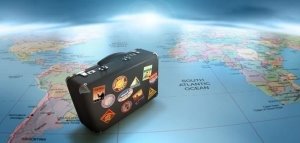 T: It’s high time to pack our suitcase for a travel. Think of the most important things we need during a journey and put the pictures of them into special pockets of our suitcase. Mind the use of the modal verb ‘should’.
T: It’s high time to pack our suitcase for a travel. Think of the most important things we need during a journey and put the pictures of them into special pockets of our suitcase. Mind the use of the modal verb ‘should’.
Ps: We should take …
a passport, a camera, an umbrella, a mobile phone, money, a guidebook, a map, a tent, matches, a watch, a sweater, trainers, a raincoat…
2. Перевірка домашнього завдання. Інсценування діалогів із використанням модального дієслова should / shouldn’t.
3. Вирішення проблемної ситуації. Робота в парах.
T: You and your partner are on a coach. It has broken down in the countryside at midnight. It is summer and the weather is very hot. It is 30 km to the next town. You decide to walk. You can only take 4 things with you. Which of them do you think you should take? Why?
![]()
![]()
![]()
![]()
 (HO2)
(HO2)
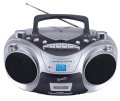

![]()
![]()
![]()
![]()
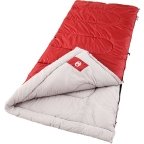
![]()
![]()
![]()
![]()
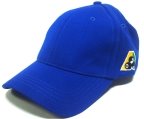
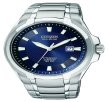
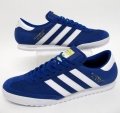

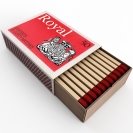

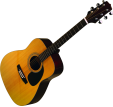
![]()
- Аудіювання.
1) Етап підготовки до сприйняття тексту на слух.
T: Dear pupils, as you know there are three main kinds of travelling: by land, by water, by air. People use different vehicles for travelling by them. So, read the sentences, find out the mistakes and correct them.
(НО3) 1. The bus goes by sea.
2. The plane goes by water.
3. The car goes by air.
4. The ship goes by land.
5. The train goes by air.
2) Пред’явлення тексту для аудіювання. Робота в групах.
T: Children, let’s create two teams and listen to the texts. The first team will be created by those who like to go hiking. The second team will be created by those who prefer bus sightseeing tours. The first team will have the pictures of different means of travelling, the second one will have the flashcards with the names of these ways of travelling. Pay attention that you will have one extra picture and one extra flashcard. Now listen to the texts and find the right picture/flashcard. After each text the representatives of the teams have to come to the blackboard with the right picture and the right flashcard and show them to us.
(HO4)
№1. It is the fastest way of travelling. It can take you from one town to the other one in no time. The seats are comfortable. It’s a pity but sometimes you can see very little from the windows. The things are too small to see them. When the weather is rainy or foggy you cannot travel by it.
![]()

№2.This way of travelling is fast. You can stop at any place you like and go where you like. You need no tickets. Usually families go by it.
![]()

№3.This is the slowest way of travelling. Both young and old people like it. You need not worry about the tickets. The only thing you need is a rucksack. You can visit many places in such away.

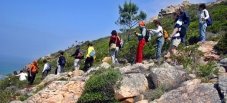
№4.This way of travelling is quite fast. The carriages are comfortable. It is so pleasant to travel in them. You can see a lot of interesting things from carriage windows. You can make a long journey on land by it.


3) Етап перевірки розуміння змісту текстів. Робота в групах.
a) Відстоювання думки «Улюблений вид транспорту».
T: Dear pupils, now work in groups again, discuss and choose the best way of travelling. Explain your choice.
Pupils answers
б) Критичний погляд.
Т: Everybody knows that different kinds of travelling have their own positive aspects. But at the same time they have their negative ones. Your task is to think over and pay attention to some disadvantages of the opposite team’s favourite way of travelling.
- Фізкультхвилинка
T: In our town people mostly travel by bus. Do you like to travel by bus? So, let’s sing a song and move a little.
The Bus Song
The wheels on the bus go round and round
Round and round, round and round
The wheels on the bus go round and round
All day long.
(Roll hands over each other)
The wipers on the bus go "Swish, swish, swish,
Swish, swish, swish, swish, swish, swish"
The wipers on the bus go "Swish, swish, swish"
All day long.
(Put arms together in front of you and 'swish' like windshield wipers)
The horn on the bus goes "Beep, beep, beep
Beep, beep, beep, beep, beep, beep"
The horn on the bus goes "Beep, beep, beep"
All day long.
(Pretend to honk hornk)
The birdies on the bus go, "Twitt, twitt, twitt,
Twitt, twitt, twitt, twitt"
The birdies on the bus go, "Twitt, twitt"
All day long.
The man on the van goes, "Fix, fix, fix,
Fix, fix, fix, fix, fix,fix."
The man on the vans goes, "Fix, fix, fix"
All day long.
The wheels on the bus go round and round
Round and round, round and round
The wheels on the bus go round and round
All day long.
T: Thank you, children. Take your seats, please.
- Розвиток умінь говоріння.
- Прокоментуй твердження.
T: Look at here. You can see some opinions about travelling. Read, translate and express your own attitude towards them, please:

 Renee, 19
Renee, 19
 Stuart, 28
Stuart, 28 
 Elizabeth, 64
Elizabeth, 64

- Вислови свою думку. «Мікрофон»
T: So, you see that many men – many minds. And what do you think about travelling? Why do people travel? Finish the sentence “People travel to…”
7. Перегляд відео «Around the World in 360 Degrees». Робота в групах.
T: Now you’ll work in groups again. Your task is to watch the video very attentively. The first group should be ready to name as many places of interest the hero of the video has visited as possible. The second group has to name all means of transport the hero of the video has used.
Pupils answers
8. Презентація «Карта наших подорожей».
T: Your home task was to write about your unforgettable trip. Come to the blackboard and stick your poster, composing the map of your journeys.
Pupils answers
IV. Заключна частина уроку.
1.Підведення підсумків уроку.
T: So, our lesson is going to the end. You have proved that you know the material rather well. Thanks for your work. Your home assignment is to write a composition “Wonderful World of Travelling”.
2. Рефлексія.
T: What did we do at our lesson today? What did you like the most?
Finish the sentences about the lesson:
The topic of the lesson was…
It was interesting to do…
Now after the lesson I can…
3. Оцінювання
T: It was very interesting to listen to your points of view. Your marks for the lesson are the following…
The lesson is over. Good-bye.
1


про публікацію авторської розробки
Додати розробку
